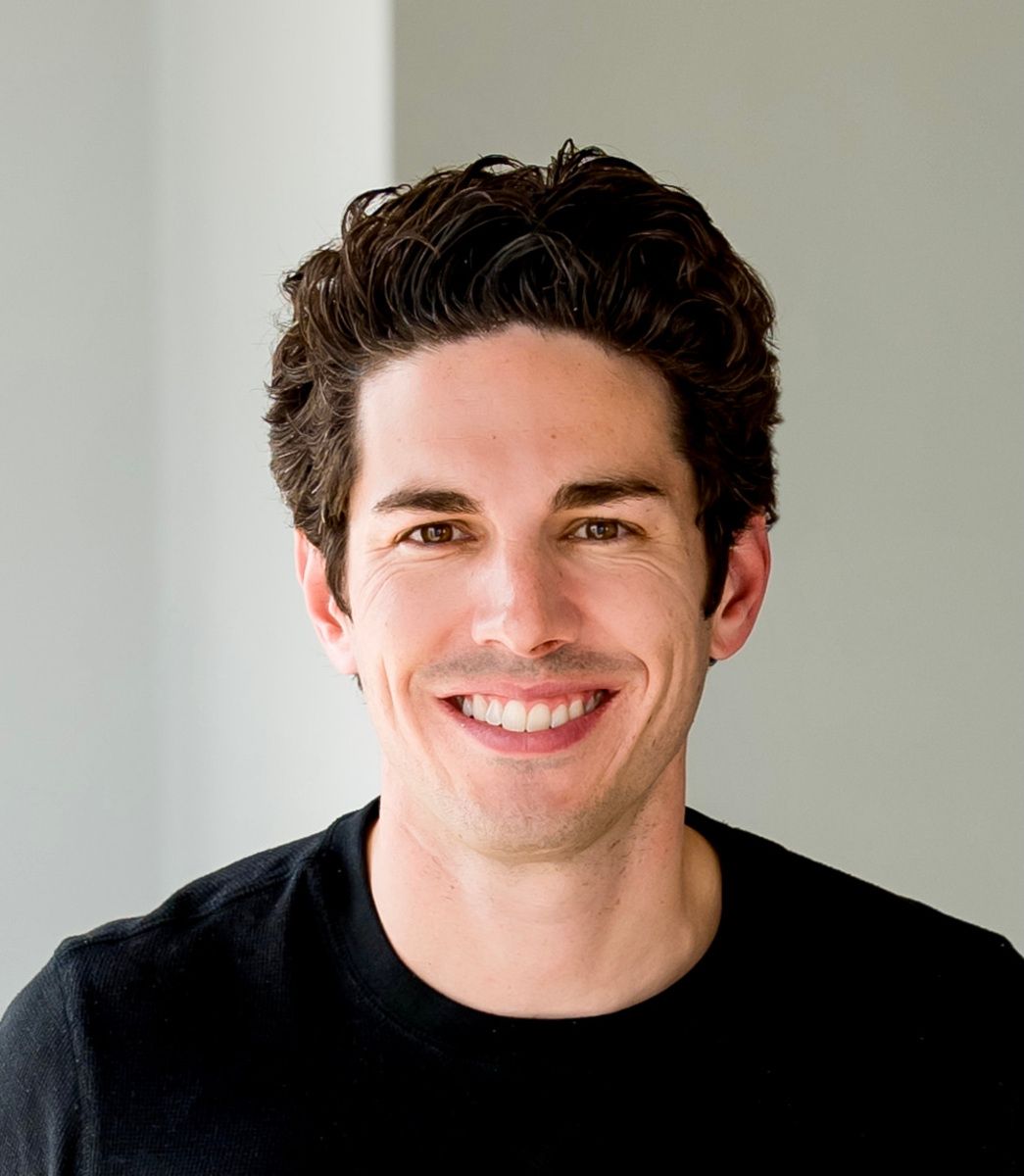If you’re new to this newsletter, click here to access the rest of my newsletter articles such as the “Why We Passed on this Startup” series, reflections on investing, and tactics on winning in the market. Now, onto today’s post!
Recently, I was reflecting on the books that have impacted the way that I think about startups and venture capital. So, I thought it might be fun as well as valuable to aggregate my top ten list of books over the last 10 years.
I have sorted this list of 10 books to the ones that I find myself remembering or quoting the most in my professional and even personal life. Note that this isn’t a rank-ordered list of importance. Each one of them has influenced me in different ways.
I would love to hear any book recommendations that you have as well!

Competing Against Luck, by Clayton Christensen
Why I Like It: I read this book when I was a startup CEO and it profoundly affected how I think about building products and product management. Christensen is one of the pioneers of the Jobs to be Done theory. This theory in essence is that customers pull products into their lives because of a functional, emotional, or social job, or often combinations of those jobs, that they want to get accomplished. This book helped reframe how I think about market problems - it is more about the progress that the customer is trying to make. This book introduces one of the most helpful frameworks that I’ve encountered in business.
Key Quote: “At its heart, we believe Jobs Theory provides a powerful way of understand the causal mechanism of customer behavior, an understanding that, in turn, is the most fundamental driver of innovation success.”
Excerpt from Competing Against Luck, by Clayton M. Christensen, Taddy Hall, Karen Dillon & David S. Duncan
Zero to One, by Peter Thiel
Why I Like It: This book is a must read for startup founders. Peter Thiel, as one of the top business builders and investors of all time, writes here about concepts that I have never heard anywhere else. It highly influenced my journey as a founder, and continues to influence me even more as an investor.
Key Quotes: “Start small and monopolize - Every startup is small at the start.Therefore, every startup should start with a very small market. The reason is simple: it’s easier to dominate a small market than a large one.”
“It’s better to think of distribution as something essential to the design of your product. If you’ve invented something new but you haven’t invented an effective way to sell it, you have a bad business - no matter how good the product.”
Excerpt from Zero to One, by Peter Thiel
The Tipping Point, by Malcom Gladwell
Why I Like It: I have this persistent intrigue with understanding how movements, people, ideas rise from pure obscurity into becoming a mass market, ubiquitous piece of society. That is the story of startups and their products. Although the book is certainly not startup specific, The Tipping Point reveals how to engineer circumstances, variables, and contexts to set the stage in favor of the startup and its product.
One of my favorite anecdotes is how Gladwell contrasts the midnight ride of Paul Revere with the midnight ride of William Dawes. The Midnight Ride of Paul Revere awakened the countryside villages to their arms to fight the British and became one of the most critical moments in American history. And yet, on the very same night, a man named William Dawes also had a same midnight ride, just as many miles as Revere, which did not set the countryside afire and fell into complete obscurity. Gladwell writes, “Revere’s news tipped and Dawes’s didn’t because of the differences between the two men.” I won’t resolve what the differences are to not spoil the book :)
Key Quotes: “The Tipping Point is the biography of an idea, and the idea is very simple. It is that the best way to understand the emergence of fashion trends… the transformation of unknown books into bestsellers… or the phenomena of word of mouth… is to think of them as epidemics. Ideas and products and messages and behaviors spread just like viruses do.
Excerpt from The Tipping Point, by Malcolm Gladwell
Switch: How to Change Things When Change is Hard, by Chip and Dan Heath
Why I Like It: One of the major things that startups tend to do with their products is to tamper with customer behaviors and workflows. If you’re interested, see this article, part of a larger series, that I wrote about customer behaviors and workflows. The question becomes, how does one change behavior. This book introduces several powerful frameworks to do this.
I use these quotes often in working with startup products, in working with people, there concepts are super helpful.
Key Quotes: “What looks like resistance is often a lack of clarity.”
“What looks like a people problem is often a situation problem.”
“What looks like laziness is often exhaustion.”
Excerpt from Switch: How to Change Things When Change is Hard, by Chip and Dan Heath
Crossing the Chasm, by Geoffrey Moore
Why I Like It: Geoffrey Moore pioneered the idea that there are five different categories of people who buy products - innovators, early adopters, early majority, late majority, and laggards. The innovators want to be the first to try something, and each one of the following categories in sequence takes its cues from the group before it. Additionally, Geoffrey Moore brings a highly insightful view to the definition of market. To him, he defines a “high tech market” as…
• a set of actual or potential customers• for a given set of products or services• who have a common set of needs or wants, and• who reference each other when making a buying decision.
The last part is one of my biggest “a ha’s” in business. Startups need to define their market as a set of actual or potential customers that can reference each other when making a buying decision - because the biggest asset in a startup’s go to market strategy is other happy customers that can be referenced. (Coincidentally, this point also marries very nicely with Peter Thiel’s quote from Zero to One about small markets.)
Key Quote: “The notion that part of what defines a high-tech market is the tendency of its members to reference each other when making buying decisions—is absolutely key to successful high-tech marketing.”
Excerpt from Crossing the Chasm, by Geoffrey Moore
Good to Great, by Jim Collins
Why I Like It: Good to Great is a book based on a number of companies who did exceptionally well due to five ingredients, compared to a competitive set of customers. It’s a business classic, and very fun to read.
I like using the five frameworks but applying it to startups as I see it as a way to analyze startup founders, their markets, and their products.
One of my favorite concept from the book is that of what Collins calls a “Level 5 Leader.” This concept is one that for me comes up over and over when I consider the founders that Tundra Angels invests in.
Key Quote: “Level 5 leaders channel their ego needs away from themselves and into the larger goal of building a great company. It’s not that Level 5 leaders have no ego or self-interest. Indeed, they are incredibly ambitious- but their ambition is first and foremost for the instituion, not for themselves.”
Excerpt for Good to Great, by Jim Collins
Building a Story Brand, by Donald Miller
Why I Like It: In late 2017, I was totally stuck in a funk with my FinTech startup, feeling nearly incapable to know how it best position my technical bond trading startup to a generalist audience of investors. Then I encountered someone who was a StoryBrand Guide and it all made sense. I read this book in about two days.
When people talk about storytelling in business, nobody really understands what that actually sounds like. Building a StoryBrand is the first and only book that I’ve read that helps you understand how to develop your story. If you are sensing the challenge of communicating what you are doing in compelling language, “Building a StoryBrand” may be just for you.
Key Quote: “Your customer should be the hero of the story, not your brand. This is the secret every phenomenally successful business understands.”
Excerpt from Building a StoryBrand by Donald Miller
Traction, by Gabriel Weinberg & Justin Mares
Why I Like It: Not many books do a great job about spelling out the steps to develop a Go-To-Market strategy. Traction does that extremely well. The authors note that there are 22 customer acquisition channels that exist today. They spell out each one, and they recommend tactics that startups use to try acquisition channels that may be different or innovation for the market the startup is in. They also have a helpful framework called the Bullseye framework on how startups should systematically experiment with all potential traction channels to find the best one or several that work for them.
Key Quote: “…Most founders consider using only traction channels with which they’re already familiar, or those they think they should be using because of their type of product or company. This means that far too many startups focus on the same channels and ignore other promising ways to get traction. In fact, often the most underutilized channels in an industry are the most promising ones.”
Excerpt from Traction, Gabriel Weinberg & Justin Mares
Play Bigger
Why I Like It: Sometimes framing is one of the most powerful forces in business. The authors introduce the concept category creation for startups. In my experience, if there are competitive startups in a given market, the one that has a higher likelihood of winning is the one that frames the category with powerful language. The framing exercise is often not in framing the solution, but in framing the problem.
Key Quote: “Category kings become some of the most famous brands because they become the symbol of the whole category—Xerox, Google, IKEA. The category king literally owns the problem it is solving. And for that reason, a category king is almost impossible to dislodge from its position in the category. Customers are too wedded to it. That’s why Microsoft spent 10 billion on Bing yet never made a dent in Google’s share of search.”
Excerpt from Play Bigger, by Al Ramadan, Dave Peterson, Christopher Lochhead & Kevin Maney
Outliers, by Malcom Gladwell
Why I Like It: Like The Tipping Point, Outliers takes a first principles approach to why outstanding performers are outstanding. Society tells us its about how hard we work. But Outliers reveals that there are variables that propel some to “success” and not others.
In short, it comes from unique opportunities that the outliers took advantage of or merely fell into, whereas many others have not.
Key Quote: “I will argue that there is something profoundly wrong with the way we make sense of success.”
“It’s not enough to ask what successful people are like, in other words. It is only by asking where they are from that we can unravel the logic behind who succeeds and who doesn’t.”
Excerpt from Outliers, by Malcolm Gladwell
Again, I would love to hear any book recommendation that you have as well!
Click here to access the rest of the newsletter articles.
Here are some of the recent ones!




